 A graduate of Lahore University, this 1995 Rahim Yar Khan born and Oman-raised songstress began her career in 2014 with an upload to SoundCloud and there has since been no looking back. Almost a decade later, with countless hits, many an acclaimed performance and a Tamgha-e-Fakhar-e-Imtiaz under her belt, Aima Noor-ul-Ain Baig or Aima Baig as she is more popularly known, lives life king-size and on her own terms.
A graduate of Lahore University, this 1995 Rahim Yar Khan born and Oman-raised songstress began her career in 2014 with an upload to SoundCloud and there has since been no looking back. Almost a decade later, with countless hits, many an acclaimed performance and a Tamgha-e-Fakhar-e-Imtiaz under her belt, Aima Noor-ul-Ain Baig or Aima Baig as she is more popularly known, lives life king-size and on her own terms.
Tell us about yourself – your family, childhood, school and college, friends etc.
AIMA BAIG: I would say sometimes introverted, sometimes extroverted, and imaginative, also someone who likes to mind their own business. I am sensitive and emotional, and I would also call myself strong. When it comes to describing myself I don’t really know how to. I think as an individual I am still exploring who I am and one day I might have the answer. Although I would prefer not having an answer because it’s way more fun to keep exploring.
My family are the best people that I know – they love me unconditionally and are extremely supportive. Each and every time I am low, they are there to pick me up. The same also goes for my friends. I am not the kind of person who makes new friends every day, though I am a firm believer you can never have enough friends. I have had the same circle since I was a child, a close group of 10 to 15 girls who’ve been together since school. What I really appreciate is that they’ve never treated me like a celebrity or any different since the day we became friends.
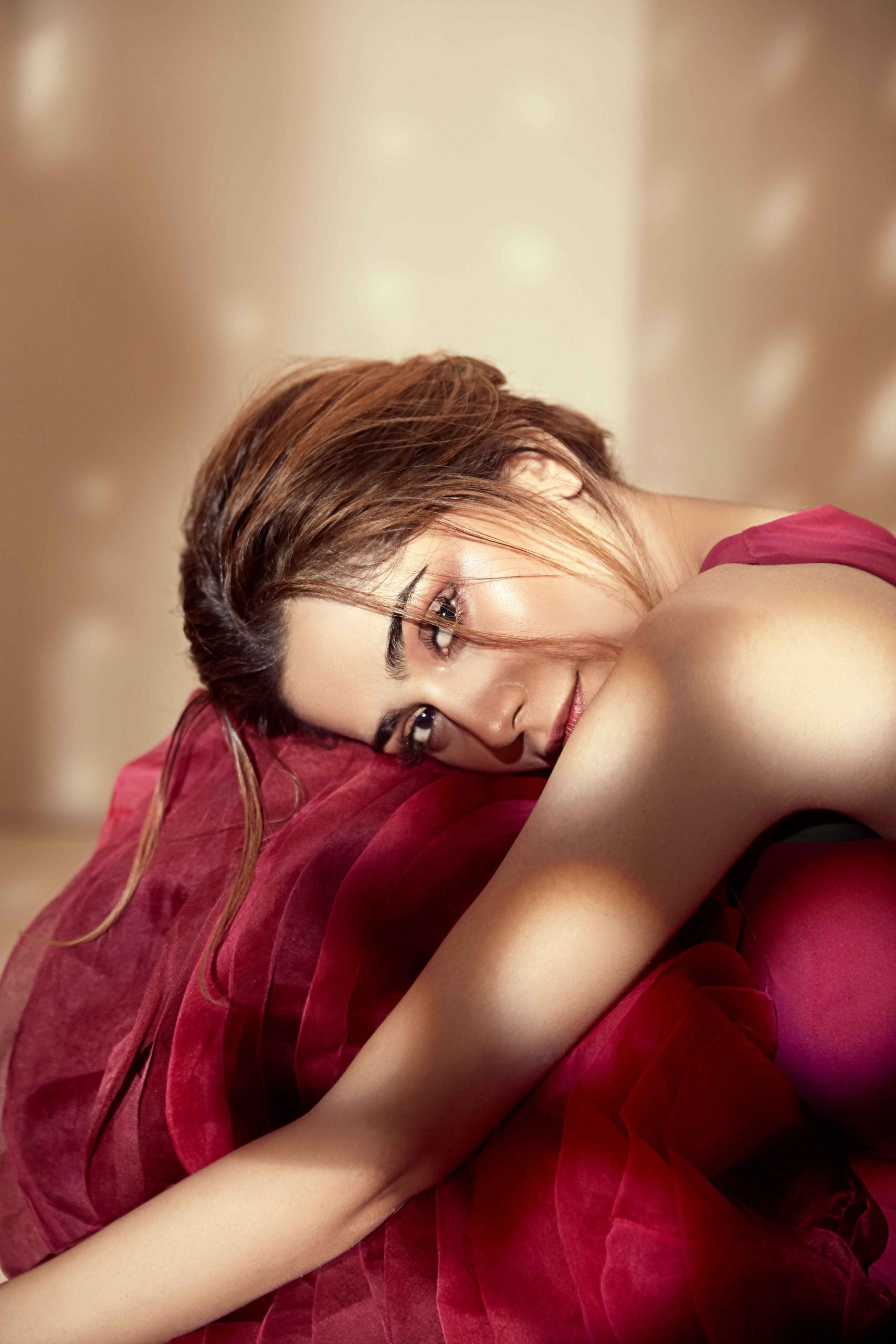 You were brought-up in Oman – what made for the move to Pakistan?
You were brought-up in Oman – what made for the move to Pakistan?
AB: I had had enough. Most of my life I have lived with my father. And I wanted to spend more time with my siblings and my mom when she was diagnosed with cancer. So I never wanted to leave her. This is probably the main reason for my move to Pakistan. When I was 15 years old, I was visiting my family in Pakistan for my summer vacation, and I was like, I am not going back – that was it.
You have a degree in Film and Television from the University of Lahore – would you say your degree has helped shape and power through your professional career?
AB: I look back at my time at university very fondly – I had a really good time doing what I love doing. Singing is my number one passion but I love film production. Being behind the camera, being the person who’s handling everything, directing, script writing, making it all happen really is my jam. I wouldn’t say my degree has helped me – but yes, the theatre I did when I was in university gave me a lot of courage and confidence to face people, to perform in front of a live audience. I wouldn’t deny that credit to my degree.
You have actively worked with cancer patients and championed awareness programs after your mother succumbed to the disease – is it a cause you still continue to work for?
AB: I don’t consider working towards the welfare of cancer patients as championing a cause. To me, helping them out or doing anything, anywhere in this world, is personal because of my mother. My God knows, my family knows and I know that we tried our best to save her, but nothing worked back then. I wasn’t able to save her. But if there’s any help, even a small fraction I can provide to a single cancer patient I would be more than happy. For me, helping cancer patients in need is a priority. People don’t know about it, I don’t want people to know about it – it’s something very personal and very close to my heart.
I help some families on a permanent basis – I visit them and provide them with what they need. Mostly what they need is love and care. The welfare of cancer patients is a cause very close to my heart, one that will always be a part of my life till the day I die. I’ve seen my mother in pain because of the disease – the suffering, the medical expenses, the hardship, the pain of chemotherapy and other treatments. I know it all too well – so, I just try to help in my own capacity which is really the least I can do.
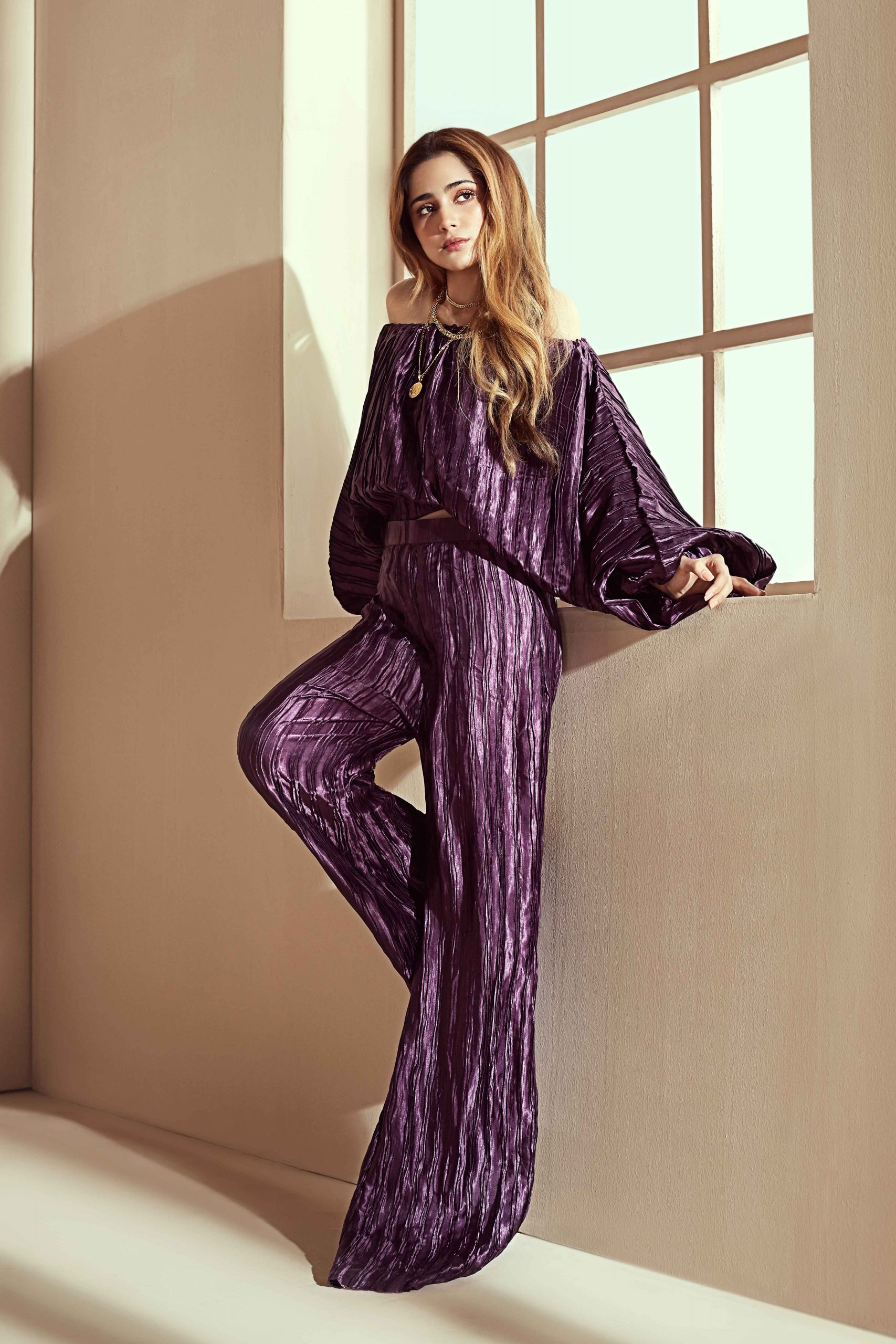 What made for your foray into the entertainment industry?
What made for your foray into the entertainment industry?
AB: I never planned on becoming a part of the entertainment industry. I was just passionate about singing, and with luck on my side, it turned into a career for me for which I am extremely thankful and grateful. I have believed in manifestation since I was a child. Back then I didn’t even know what it was and I was doing it intentionally. I always knew big things would happen for me, because I am a firm believer that intention matters and as far back as I can remember, my intention has been to pursue my passion.
What is your earliest memory associated with music?
AB: A project with ISPR post the attack on Army Public School in Peshawar. We were painting the school after it was rebuilt – a bunch of us were helping out. The vibe was something else – friendly and peaceful. I just didn’t want to leave. That was a memory that made me recognize that being part of the music industry isn’t a song and a dance and all things glam – it gives you the space to help others. That would be my first good, good, good memory associated with music.
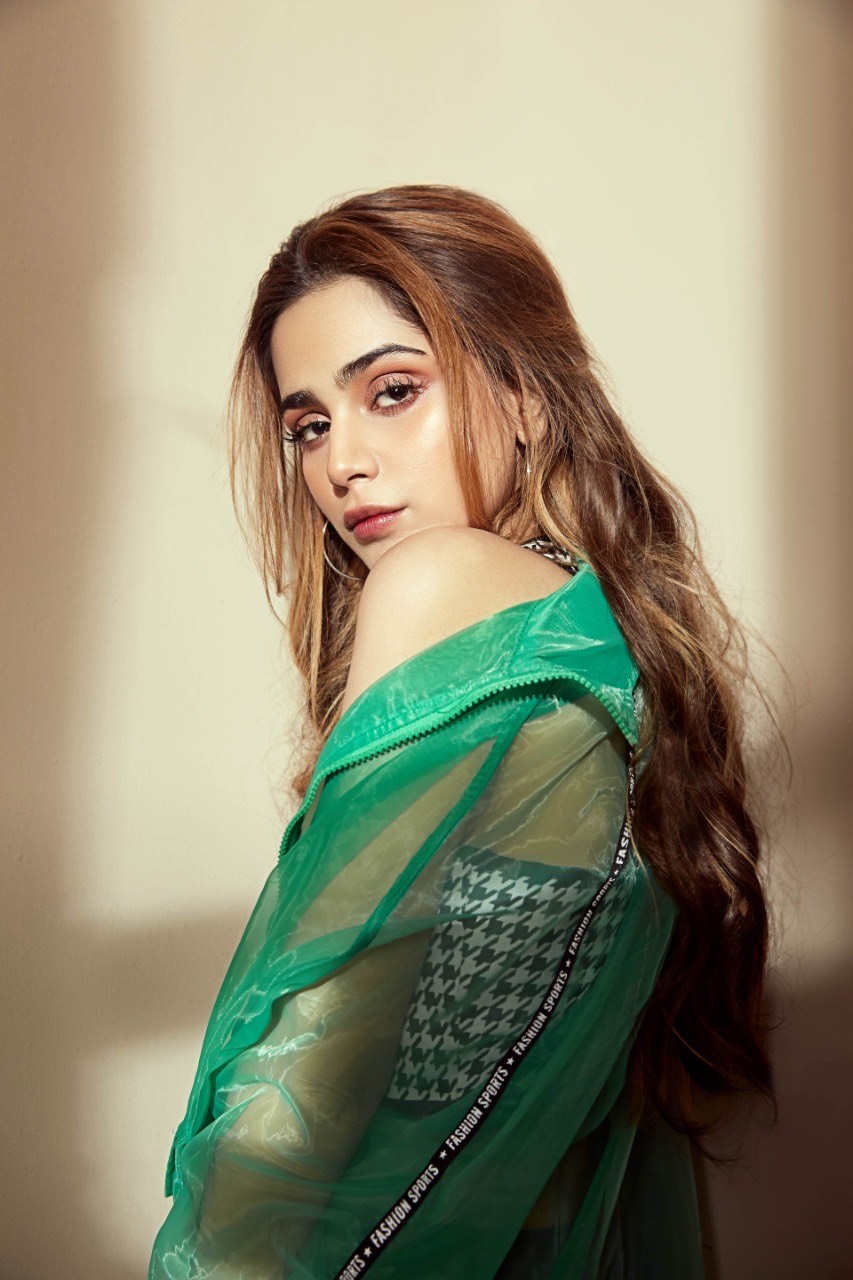 Tell us about your debut – what was the inspiration for your first song/album?
Tell us about your debut – what was the inspiration for your first song/album?
AB: My first song was “Nanay Hathoon Mein Kalang”. It was for ISPR for the kids who were attacked. The inspiration behind it was to help these kids, their families; to rebuild that hope – what those families and kids had lost. We are never sure of what is going to happen. Just standing there in that demolished school – it really gave us inspiration to write a song about it .
Your repertoire boasts songs of diverse range – what genre of music do you enjoy most and why?
AB: I was recently sitting with a legendary, international composer in a studio to work on my next album when he asked me what kind of genre I would like to pursue. I was like this is music, and it is all about having no boundaries, no restrictions, no language barriers, no obstacles – we can just be free. I think more than singing in sur, I am more passionate about being versatile. That has worked for me for the past six years. I could be singing anything – rock, rap, folk, classical, hip hop. I don’t have a single genre. For me an album isn’t an album but a chapter of my life. Because to me, the process of writing a song has a story behind it. I don’t want to limit my music with boundaries. I am open to all the genres.
Film, television, jingles, sports anthems, studio collaborations, motivational national songs, you’ve done it all – as an artist and as an individual what have you enjoyed more and why?
AB: I actually enjoyed it all to be honest. It is so much fun. I live my life to its fullest when I am at the studio engaging and brainstorming with creative minds. I feel like I am actually doing something right with my life and bringing about a change. When I am about to hit the stage, I become nervous as I am an introverted person. But once I am up on stage all that changes in an instant – a priceless feeling.
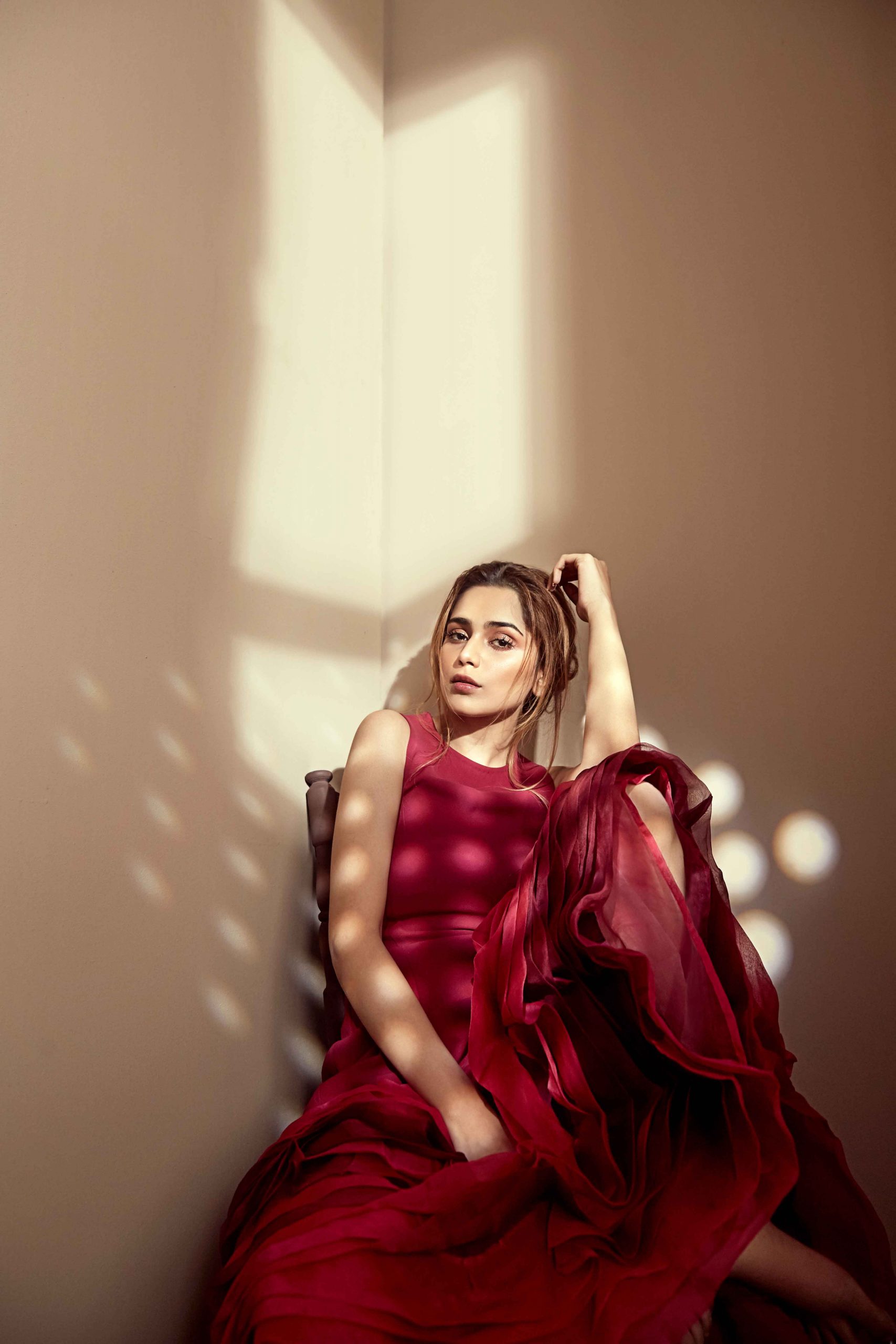 What would you define as a dream project?
What would you define as a dream project?
AB: To produce my own documentary – one that documents everything an artist goes through both personally and professionally. Like an artist’s reflection of the life of a fellow artist. I dream of having my own production house one day where I can compose songs for others as well as help upcoming artists with their big break. I am only 27 but I feel I am 72 because I have this motherly instinct in me. I really want to help others fulfil their dreams. I would love to do world tours and promote new artists.
Any international collaborations/projects in the offing?
AB: There are a bunch and I am really excited about them. I think this is a huge step forward to be heading where I would want to see myself. With each success, I’m always like ‘oh, now I want to reach another level’. It’s a constant battle within yourself which one day I hope to make peace with.
Had you not been a musician, what might have been your alternate calling?
AB: I would be a writer – a script writer; I could also have been a chef because I love cooking. But I do make quite a bit of a mess so I am not sure about that. Maybe, I could be someone’s manager because I manage things really well.
How do you tackle controversy?
AB: I don’t tackle. My mantra is I don’t tackle. I just let it be. And you know, eventually the madness dies down. I strongly believe that each controversy, each uproar, each scandal has a certain timeline and eventually it passes, everything goes back to normal and everyone forgets about it. In the beginning I would really get affected by such things, because deep down I am a very emotional person. I’m a Piscean and I’m sensitive. But being in the industry, I’ve become a strong person – these trivial things don’t matter to me anymore. Negative comments about me, or my family or how I am dressed, how I am singing, about my songs – I no longer really pay attention. I let it go. I try to stay away from Instagram and other social media platforms. In the beginning of my career that wasn’t the case. But I learnt my lesson, that the more you’re going to be in touch, the online commentary will drive you crazy and scar you. I only had one controversy that scared me and I’ve learnt so much from it – it was enough for me to learn a lesson.
Personally and professionally, what in your view has been your biggest high and what has been your greatest challenge?
AB: My highest high was undoubtedly being awarded the Tamgha-e-Imtiaz. I was in LA on vacation when I received a call from an unknown number saying I’ve been nominated. In disbelief and to the caller’s surprise, I responded saying that can’t be true because I haven’t done anything worthy of being bestowed one of the highest civilian awards in the country. Being awarded the Tamgha-e-Fakhr-e-Imtiaz is and will always be one of the highlights of my life.
For me, as a musician, the greatest challenge is making music every day – to do my best, to raise the bar and compose a song better than my previous one. The pressure from my fans and listeners is real.
As an individual, I find becoming part of the rat race is frustrating. To engage with people is also sometimes challenging when you don’t want to dress up or put on makeup or shower for two days because you’re being lazy. You just want to stay home but you have to step out, interact with people, smile and take photos. It makes you realise you are merely someone’s mode of entertainment, even when you’re not in the mood.
Both as an individual and as an artist: 1) what motivates you to push and raise the bar, 2) what inspires you, 3) what is your motto, 4) your comfort zone, 5) your getaway?
AB: What motivates me to push and raise the bar – I think it’s just myself. I know that being an overthinker isn’t a good thing but I am one. I keep telling myself to stop, because over-analyzing isn’t going to change anything. You simply need to be able to pick up the pieces and hit the road running. I know it isn’t easy but it must be done. I could be in my studio for days facing a creative block without making any music. I spend time sitting with my dad, talking to my brother or sister over Facetime. Just me unwinding and enjoying a moment with my near and dear ones, gives me so much inspiration. It’s hard to explain what type of inspiration I am talking about. Artificial things don’t inspire me – I look for inspiration in life, real life – happiness inspires me, my family, my siblings, my father motivates me to keep making music and not just give up yet. Unintentionally it makes me a hustler, I don’t mind being one.
I don’t have a motto per se but I very definitely believe in manifestation – I believe if you work hard you are going to get there in the end. There are people that say we work so hard, why aren’t we blessed, why aren’t things working out for us? I am a firm believer, give it your 100% and trust that it will come together.
My comfort zone is undoubtedly my family and friends, or else me cozying up in my blanket watching documentaries or listening to podcasts.
My getaways are vacations not in Pakistan but somewhere where no one recognizes me. I am not complaining, I am very grateful to Allah for giving me this life but sometimes you just want to be the person you are and I am naturally an introvert.
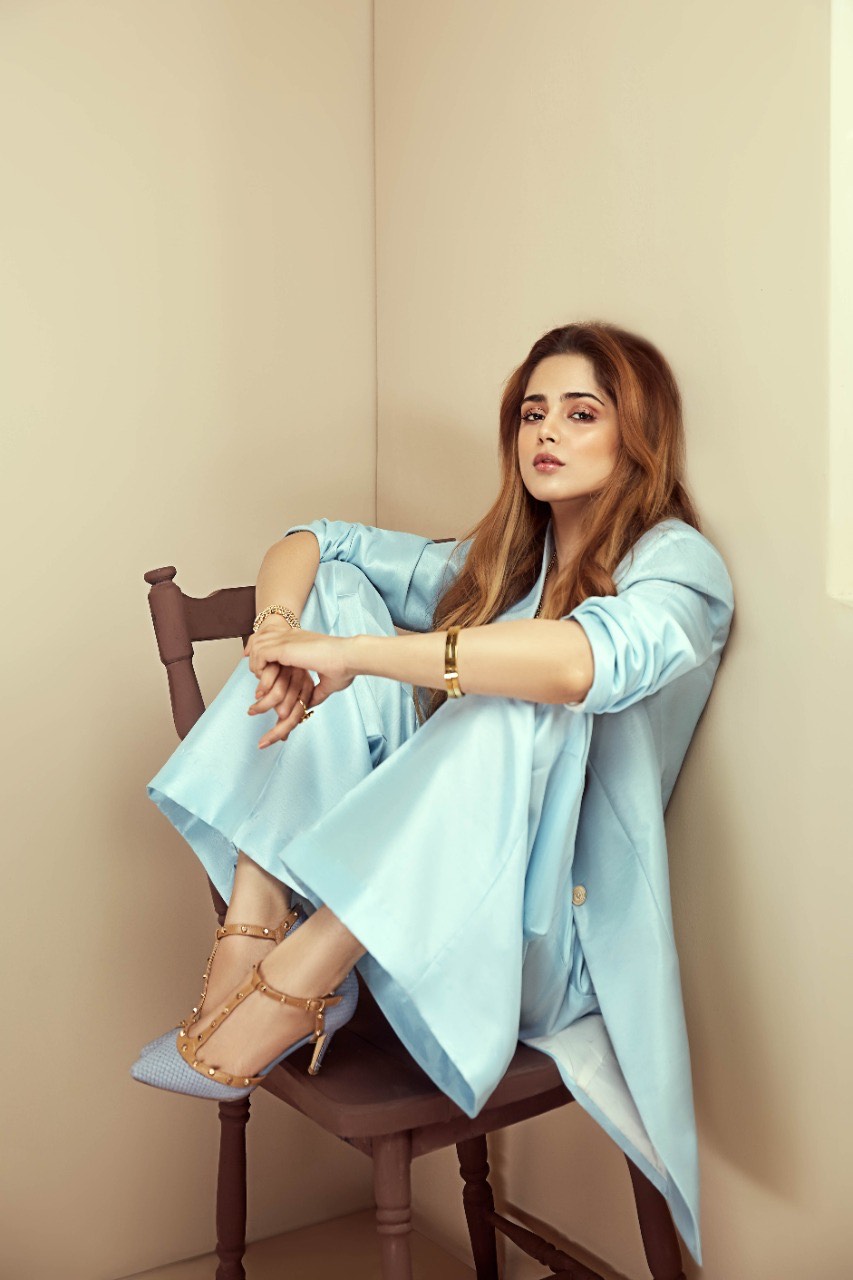 Your Bucket List?
Your Bucket List?
To make a documentary.
To visit all the haunted houses across the world.
To learn multiple languages.
To know how to make your own hair – I just cannot. I think girls who can make their own hair are very talented.
A foundation where there is no underhandedness involved. One that is able to create a platform for people who want to have a space where they can heal themselves.
To help kids and broken people.
To bring a change in the industry – to make an impact through music.
Bungee Jumping, Scuba Diving and Parasailing all of which I’ve done usually feature highly on most Bucket Lists but never did on mine.
You have collaborated musically with a number of artists – which collaboration have you thus far enjoyed the most?
AB: I love all my fellow artists and I’ve enjoyed working with each and every one of them – all of them were amazing! Every time I collaborate with someone senior to me, I get to learn a lot and gain experience – it’s like I am attending an institute. Collaborating with someone my age or younger than me, I get to share ideas and share the same feelings – like when working with Asim or Arjit, it’s a different vibe.
How would you define Aima Baig – the individual and the artist?
AB: She’s a mess – whoever she is. But she isn’t a bad person, I am sure. I do not aim to step on people just to get what I want.
Aima, the individual, is a mediator.
Aima, the artist, is a mazdoor.
What’s next for Aima Baig?
AB: There are a lot of projects I’ve done so far for this year, I am looking out for those projects. As far as what is next for me, only Allah knows. It could be having babies or not for the next 20 years, or making an impact. It could be anything or I could be dead – only time will tell.
INTERVIEW: YUSRA ASKARI
PHOTOGRAPHS: ADIL ISHAQ
![]()











































